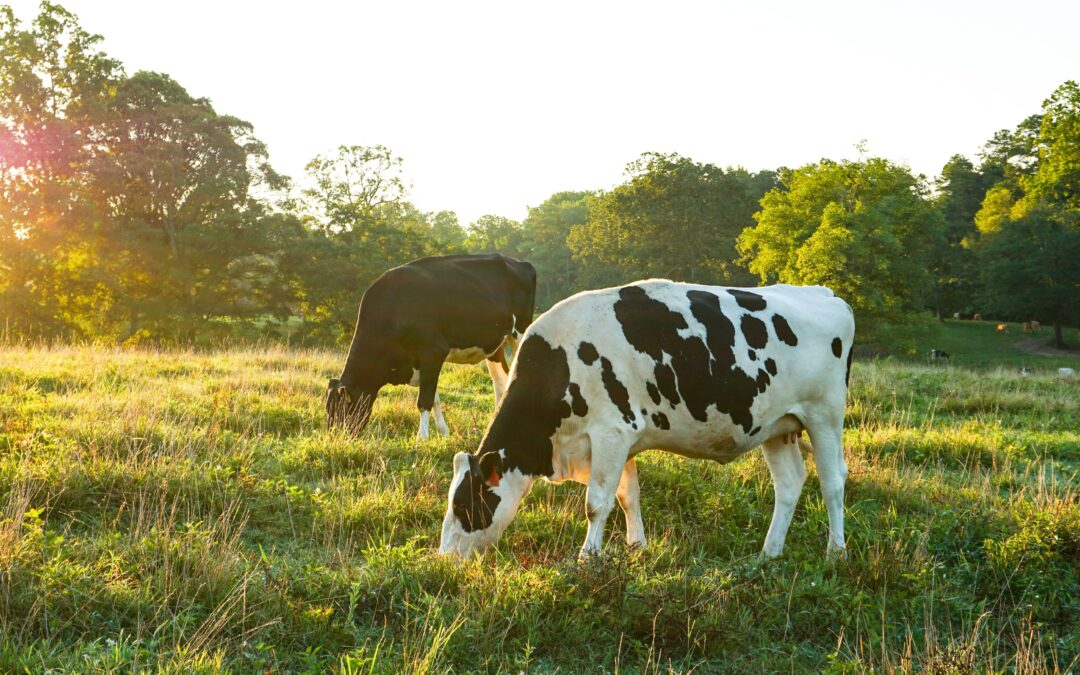Natural inputs lead to healthier cows
The loss of his dairy cows led Randy Mosel to transition his operation to organic.
“My cows were fed a TMR containing homegrown alfalfa, corn silage, ground corn, and earlage,” Mosel recalled.
At the time, Mosel treated his fields with synthetic inputs to control pests and weeds. He noticed that after eating feed produced from these synthetically treated crops that his cows became ill or died.
“The health of my cows improved immensely after I removed the synthetic fertilizer and pesticides,” Mosel said.
A key indicator of dairy cow health is the somatic cell count found in their milk. Cows whose milk has a somatic cell count below 100,000 are considered healthy. After transitioning his grazing fields to organic, Mosel’s cows produced milk with a somatic cell count below 75,000 at a time when the national average was 330,000.
“My animals responded quickly to the use of chemical free feedstuffs,” Mosel said.
Supportive local chapter
In 2015, Mosel transitioned his operation from dairy to crop production. He noted that his local OCIA chapter helped him in the transition process.
“The chapter was strong,” he recalled. “[They] had a field day that I attended, and the members impressed me with their passion for organic farming.”
At the field day, Mosel and others had an opportunity to learn about the production and marketing of organic crops, synthetic-free weed control measures, and equipment.
“The members were very open to any questions asked,” Mosel remembered.
The on-farm experience helped Mosel better understand organic farming best practices and enabled him to make smarter decisions about equipment purchases and marketing strategies.
Today, Mosel has a strong multi-year crop rotation cycle that includes alfalfa, corn, soybeans, and oats with peas.
“My crop rotation consists of 4-5 years in alfalfa, then a year of corn, soybeans, and oat/pea hay,” he said. “Alfalfa is seeded back in the fall as a stand-alone crop following the oat/pea hay crop. The oat and pea mis are taken as a hay crop in late June.”
The rotation schedule has allowed Mosel to establish healthy and resilient soil that produces high quality yields year after year.
Every operator’s path to organic certification is different. Learn more about about the different paths to organic certification in our “Operator Spotlight” series.
- Edelman Certified Organic Farm: Brad Edelman’s passion is sustainable agriculture. The Kansas based farmer has made it his life’s work to farm sustainably and help others make the transition to sustainable practices.
- Allan Kettle: In the mid-1990s, Allan Kettle decided to organically certify his Alberta farm. For Allan, the decision to pursue organic certification was easy. Allan’s father, who operated the farm before him, had never used synthetic fertilizers or sprays. Allan continued those practices when he took over the farm.
- Variety Coffee: Variety Coffee has a simple mission: provide customers with the freshest, highest quality coffee possible. The Brooklyn based coffee roster and chain of cafes does this by sourcing coffee beans from around the world, focusing on acquiring beans that reflect growing seasons of different coffee producing regions.
- Jack Geiger: The farm crisis of the 1980s forced Jack Geiger’s family to consider farming methods that required fewer and less expensive inputs. They naturally turned to organics.
Learn more about organic agriculture, certification, and OCIA International.
- Should you transition to Organic?: The decision to transition a conventional operation to organic is deeply personal. Organic certification requires resources, like time and money, and perseverance in the face of the challenges that you will inevitably encounter along the way. Is transitioning to organic the right step for your operation?
- Organic Certification Process: All operators seeking initial organic certification must complete a similar six step process regardless of which certification agency they partner with. The certification process can feel intimidating at first, but knowing what to expect can help alleviate much of the stress you might initially feel.
- Organic System Plan: Every operator must submit an organic system plan. But what is included? And how will the plan provided YOU with benefits beyond certification?
- Healthy Soil: Cultivating healthy soil requires establishing ecological balance and increasing biological diversity. But how can you establish healthy soil on your farm?
- Why Certify with OCIA?: Choosing an organic certification agency is one of the most important points in an operator’s certification process. Let us tell you why OCIA is the right choice for you.

